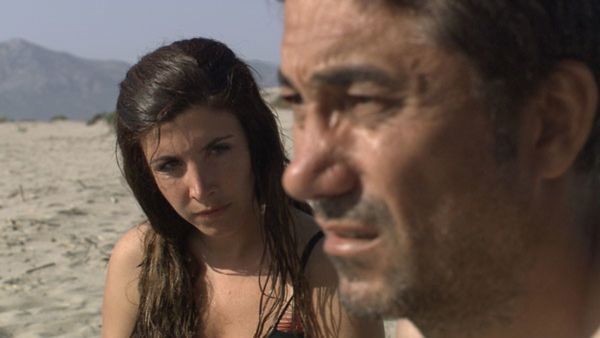Eye For Film >> Movies >> Climates (2006) Film Review
Climates
Reviewed by: Angus Wolfe Murray

Not since Antonioni’s arid films of emotional intensity, before he snapped out of it with Blow Up, has anything quite touched upon Turkish writer/director Nuri Bilge Ceylan’s introspection. Climates is the study of a mid-life crisis and the search for meaning that inevitably leads to the anguish of self doubt.
It is filmed in the Dogme style, although does not claim to be part of that movement, with no musical score and a reliance on natural sounds, such as waves, wind, dogs, trains, cars, breathing and even the crackle a cigarette makes when dragged upon. The camera is static, which puts pressure on the actors, some of whom aren’t actors, such as Ceylan himself, who plays the protagonist Isa, a mature student, and his wife Ebru, who plays Isa’s girlfriend Bahar, who works as an art director for a TV company.

The film opens at Kos, where Isa and Bahar are taking their first holiday together for years. Although communication between them is spasmodic, the camera lovingly captures every nuance of Bahar’s face, interpreting her feelings with infinite delicacy, so that when it comes to the moment on the beach when Isa says it would be better if they spent some time apart and yet still remained friends, you understand her devastation and response.
This is a relationship that has already been damaged by an affair, which undermined Bahar’s self-confidence and crippled trust. Although not broken, their affection has grown stale and Isa, whose selfishness eventually dilutes sympathy, wants to rediscover the freedom of being an unattached male in his mid-forties.
The film is like a shout, dying in the throat, with the sound turned down, so that everything is expressed through the eyes and nothing is resolved, nor talked through, like it would be in a Bergman movie. The scene when Isa turns up at his ex-lover’s apartment unannounced and proceeds to rape her is as powerful as it is shocking.
Although this is a family outing for Ceylan – his mother and father appear as Isa’s mother and father - it is not autobiographical, or so he insists. Where the film succeeds best is portraying the complexities of human relations and how you can feel one thing about someone one day and another thing the next.
Isa lies to himself, as well as to others. He has no anchorage and by the end knows it. But because he is incapable of love, something Bahar understands and suffers, every motivation is based on self interest and you begin to dislike him, while, at the same time, you respect Bahar and feel desperate for her, thanks, in most part, to Ebru’s strong performance.
Reviewed on: 06 Feb 2007


















